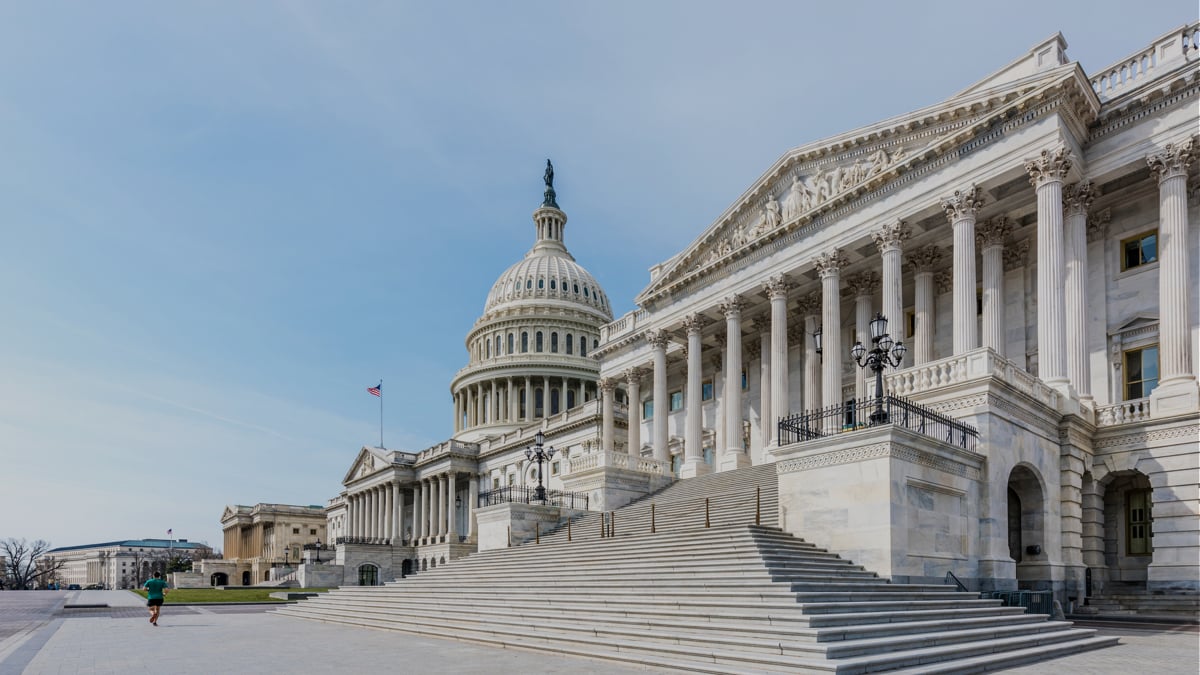The US government will soon track you online without a warrant
Though many consider the US a beacon of liberty and human rights, its government’s thirst for carte blanche surveillance power suggests otherwise. Politicians in the US have renewed and expanded a set of government surveillance laws that would allow them to perform warrantless monitoring of anyone in the country.

The law, called the PATRIOT Act, granted the government unprecedented surveillance powers in the aftermath of 9/11. It was intended by some of its supporters to be a temporary measure. Two decades later, however, those laws are still in place.
Its supporters in the Senate, led by Mitch McConnell, have successfully voted down an amendment that would have protected Americans’ right to privacy. This means that the expanded powers in the renewed PATRIOT Act will almost certainly be ratified. Here’s what that means for anyone in the US:
- Warrantless monitoring: The new PATRIOT Act will expand FBI surveillance, authorizing it to monitor Americans’ browsing and search histories without a warrant.
- Political surveillance: The changes will also give the attorney general at the Department of Justice unprecedented access to the FBI’s surveillance efforts, making it easy for the holder of this high-ranking political position (currently held by William Barr) to monitor rivals and other persons of interest.
- Ongoing heavy surveillance: In addition to the problematic new changes, most of the PATRIOT Act’s current invasive government surveillance tactics will continue to take effect. The law grants various government agencies sweeping powers to perform wiretaps, online surveillance, and other privacy violations. In total, this law is one of the greatest threats to American citizens’ right to privacy.
How to protect your privacy and security
This is more than just a privacy security. As we’ve noted before, the government’s cybersecurity is extraordinarily shoddy. Even if you trust the government with total oversight of your every move, there’s no guarantee that they won’t let your data fall into the wrong hands.
Here’s what you can do to protect your right to privacy and security:
- Make your voice heard: There are opponents to the PATRIOT Act changes across American political spectrum. Write a letter or call your senator, or get involved with your favorite privacy-oriented political advocacy groups. The current political battle is lost, but the war is not over – the privacy amendment was defeated, but the surveillance changes technically haven’t been voted in yet. Let your representatives know how much this matters to you.
- Use a VPN: Much of the online surveillance data gathered by the PATRIOT Act and FISA will come from your ISP. You can protect your data from ISP surveillance by securing your traffic with a VPN. Make sure it’s one with a no-logs policy to really guarantee that your records aren’t being kept.
- Improve your awareness: Our blog has tons of information on how to improve your online security and privacy practices with little to no impact on your online freedom. This will all help reduce your data footprint.
Take the first step in defending your online freedom and privacy with NordVPN